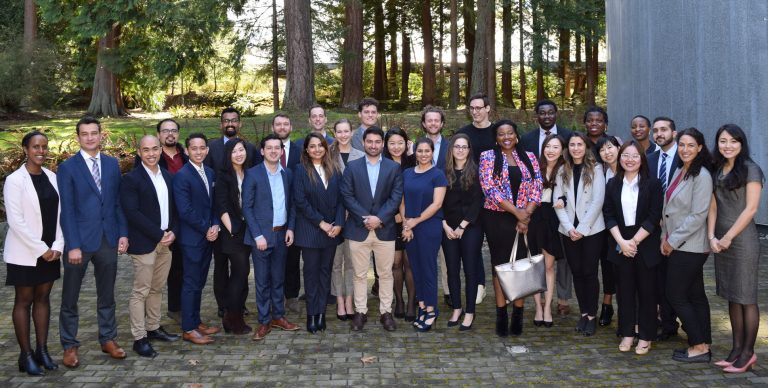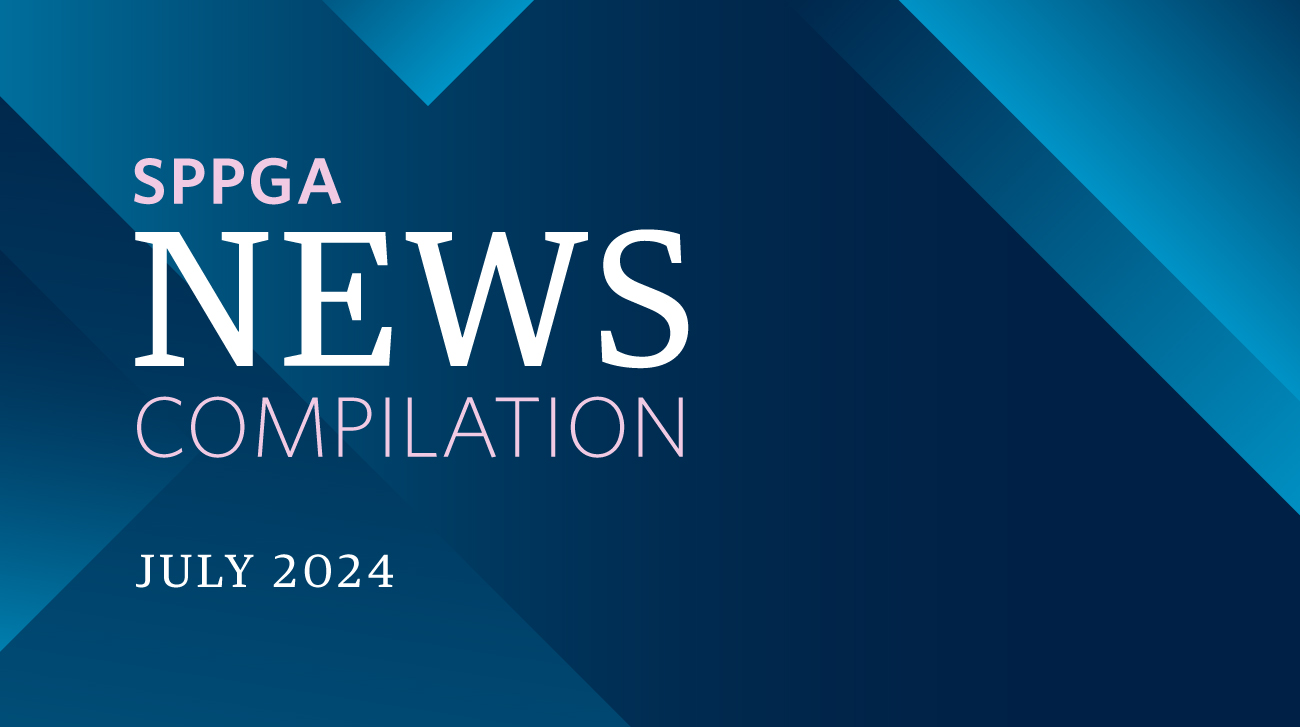

As a defining element of UBC’s professional Master of Public Policy and Global Affairs (MPPGA) curriculum, the Global Policy Project (GP2) (GPP 590) provides the opportunity for MPPGA students to engage with policy makers and civil society organizations on a real-world policy challenge, in Canada and around the world. Learn more about the GP2 on our Experiential Learning page.
On March 26, 2019, MPPGA students from the 2017 cohort presented their policy report findings at the Global Policy Project Symposium held at the UBC School of Public Policy and Global Affairs. Several projects were locally based while others involved international travel to Nepal, Ghana, Ethiopia, Peru, and India. The teams applied policy research methods and strategic design skills to address various policy issues identified by their clients, from sickle cell disease management in Nepal to developing a Community Resistance Tool for Free the Slaves in Ghana.
Watch the student team presentations below to take a closer look at each Global Policy Project:
INTERNATIONAL TEAM PROJECTS
Sickle Cell Disease Management and Service Delivery in Southwestern Nepal
MPPGA students Bashar Alsaeedi, Shaf Noorani, Marzia Rizvi, Daniela Rodriguez, and Hadis Siadat worked with their client, Creating Possibilities (CP), in Nepal to provide recommendations on the adequacy of the Nepali public health policy infrastructure and services’ for addressing the socio-economic impact of Sickle Cell Disease (SCD) and supporting appropriate disease management in the Tharu community.
Artisanal and Small-Scale Mining in Ethiopia
Adam Cassady, Juliana Craig, Huilin Gao, Sebastián Jarrin Grijalba, and Catherine Tarimo traveled to Addis Ababa, Ethiopia to evaluate the adequacy of Ethiopia’s institutional mechanisms that are designed to enable gender inclusiveness in artisanal and small-scale mining operations. They worked closely with project clients, Canadian International Resources Development Institute and Ministry of Mines, Minerals, Petroleum and Natural Gas of Ethiopia.
Troubled Waters: Developing the Community Resistance Tool for Free the Slaves
The Ghana team, Ali Abdullah Bajwa, John Ede, Adedoyin Luwaji, Ros Seibert, and Simin Yook, spent time in Accra and rural communities to gain insights on how to develop a robust mechanism to measure the effectiveness of Free the Salves’ intervention activities and resiliency of communities from slavery.
“The students demonstrated the utmost professionalism and dedication in making sure they delivered a high quality tool to FTS. The students had the unique opportunity to interact with local community members and FTS’ local program managers and community mobilizers, thereby gaining unique perspectives on how anti-slavery initiatives are implemented at a grass-roots level. The UBC MPPGA team developed an assessment tool that will allow FTS and its local partners globally to assess the degree to which the different communities they work in are resistant to various forms of slavery. This type of assessment will allow FTS to get a stronger understanding of its impact on targeted communities, and help the organization better tailor its services for vulnerable populations worldwide.”
– Kavi Ramburn, Monitoring, Learning, and Evaluation Manager, Free the Slaves, Ghana
Integrated and Inclusive Water Resource Management in Peru
MPPGA students Misrak Yacob, Atieh Razavi Yekta, Diego Bastidas Chasing, and Tovo Jose travelled to Lima and Cusco, Peru to conduct their fieldwork, guided by the Autoridad Nacional de Agua (National Water Authority of Peru) and the Canadian International Resources Development Institute. The team studied the policies, programs and institutions within ANA in terms of their equitable and integrated approach to water management.
An Assessment of Gender Gaps in Infrastructure Projects
Dorine Akwiri, Alex Ash, Alfonso Hernandez Delgadillo, Tracy Ly, and Rafael Posada travelled to Gujarat, India to learn more about how to best evaluate the approaches utilized by large development banks for assessing gender gaps in their infrastructure projects so the Asian Infrastructure Investment Bank (AIIB) can implement their own gender assessment approach.
DOMESTIC TEAM PROJECTS
Balancing the Equation: Reconciling B.C.’s LNG Export to China with its Climate Targets
MPPGA students Aboozar Ahmadi, Jiaxin Li, Nicole So, and Darren Touch worked with their client, the Ministry of Energy, Mines and Petroleum Energy for British Columbia, to examine the policy options available to the Government of British Columbia for reconciling the desire to grow its LNG industry and with the obligation to meet the provincial and national climate targets.
The Future of Oil Sands Workers in Alberta
Susanne Beilmann, Clare Kim, Tommy Koh, and Aaron Nelson explored the strategies that the Alberta Federation of Labour can advocate to manage the impact on oil sands workers and their immediate communities, focusing on maintaining their standard of living. They provided their recommendations to the Alberta Federation of Labour (AFL).
Greening Vancouver’s Fleets
Students Luthfi Dhofier, Sara Harb, Nicholas Lloyd-Kuizk, Alex Loginov, and Chiamaka Mogo worked with the City of Vancouver’s Planning, Urban Design and Sustainability Unit to provide guidelines on the possibilities, processes, and barriers to promoting the transition to zero emissions in the City of Vancouver based on a scan of the best practices implemented in other cities.
“The MPPGA students who worked on this project for us were very professional, thorough, and were able to capture the information and summarize it in way that was specific and relevant for the City. The students did a great job in evaluating the context and trying to understand the appropriate City actions that could be undertaken. Their research provided us with a good understanding of some of the best practices globally and will contribute to the policy and program options we review as we move forward with a private fleet decarbonization strategy.”
– Matt Horne, Climate Policy Manager, City of Vancouver


